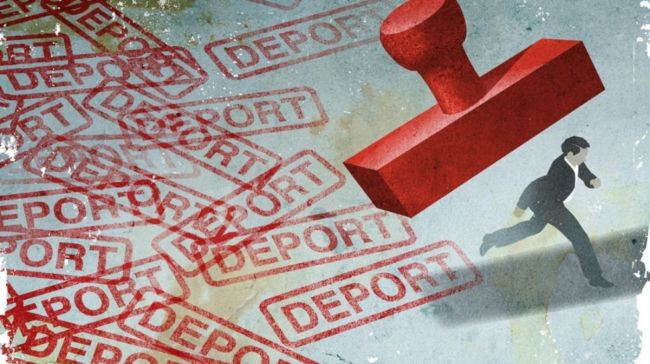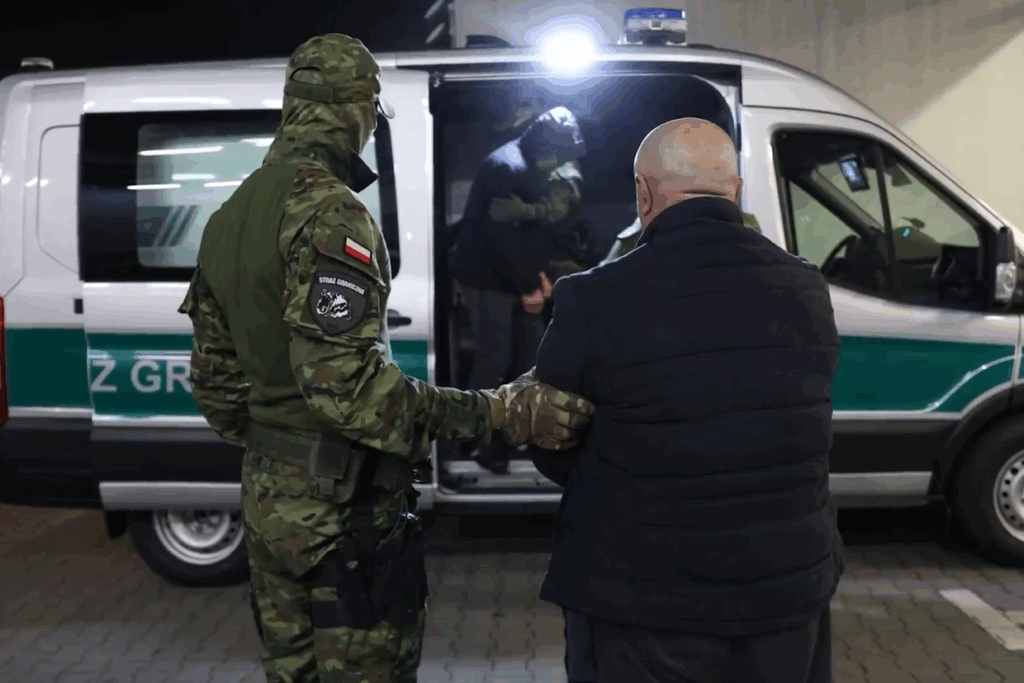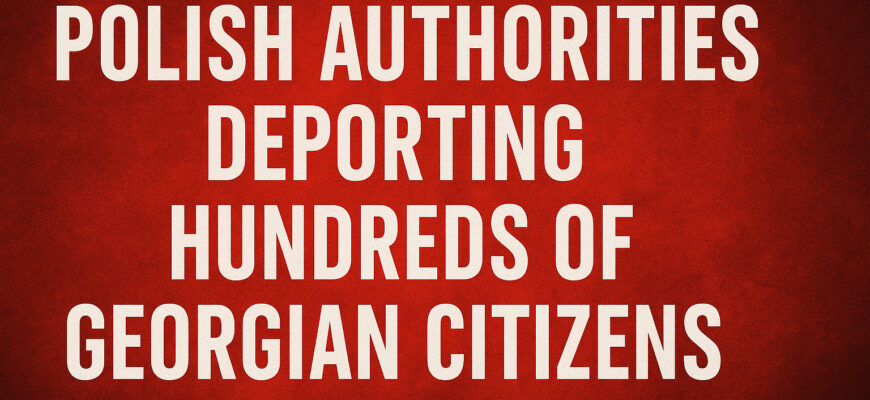Poland has recently made headlines with its decision to deport hundreds of Georgian citizens, citing their involvement in criminal activities. This move, announced by Poland’s Interior Minister Tomasz Siemoniak following a high-profile “migration summit,” has sparked discussions about immigration policies, public safety, and international relations. This article, prepared by journalists at TheMors, dives into the reasons behind Poland’s deportation measures, the context of these actions, and what they mean for both Polish and Georgian communities.
- Background of the Deportation Decision
- Why Georgian Citizens?
- The Migration Summit and Its Outcomes
- Collaboration with Frontex
- Impact on Polish-Georgian Relations
- Public Reaction in Poland
- Broader Context of Migration in Poland
- Crime and Migration: A Complex Relationship
- Other Deportation Cases
- Legal and Ethical Considerations
- Challenges for Deported Individuals
- What This Means for the Future
- Potential Policy Changes
- Implications for Georgia
- Conclusion
- FAQ
- Why is Poland deporting Georgian citizens?
- How many Georgian citizens are being deported?
- Is this policy targeting all Georgians in Poland?
- What role does Frontex play in these deportations?
- How might this affect Polish-Georgian relations?
Background of the Deportation Decision
Poland’s government has taken a firm stance on immigration in recent years, particularly in response to growing concerns about crime rates linked to certain migrant groups. According to a statement from Interior Minister Tomasz Siemoniak, the deportations target Georgian citizens who have been involved in illegal activities, including organized crime. The announcement came after a “migration summit” held in mid-July 2025, where Polish authorities reviewed immigration policies and their impact on national security.
The decision to focus on Georgian nationals stems from reports indicating a rise in criminal activities attributed to specific groups. Polish authorities have emphasized that these deportations are not a blanket policy against Georgians but are aimed at individuals who have violated Polish laws. This development follows earlier actions, such as the deportation of 27 Georgian and 13 Moldovan citizens on July 17, 2025, as reported by the Polish Border Guard Service.

Why Georgian Citizens?
Georgia, a country in the South Caucasus, has seen significant migration to Europe, including Poland, in recent years. Many Georgians move to Poland for work opportunities, as the country is part of the European Union and offers better economic prospects. However, Polish officials have noted that a small subset of these migrants has been linked to criminal networks, including theft, drug trafficking, and other illicit activities.
The Polish government has identified Georgian organized crime groups as a particular concern. In March 2025, Prime Minister Donald Tusk highlighted these groups as a priority for law enforcement, stating that they were “very active” in Poland. This focus has led to increased scrutiny of Georgian nationals, culminating in the recent wave of deportations.
The Migration Summit and Its Outcomes
The “migration summit” held in July 2025 was a pivotal event in shaping Poland’s current immigration policies. The summit brought together key stakeholders, including government officials, law enforcement agencies, and representatives from the European Border and Coast Guard Agency (Frontex). The discussions centered on balancing Poland’s commitment to EU migration policies with the need to maintain public safety.
During the summit, Minister Siemoniak emphasized the importance of addressing crime rates among certain migrant communities. The decision to deport hundreds of Georgian citizens was presented as a direct response to these concerns. The Polish government has made it clear that it aims to protect its citizens while maintaining fair and transparent immigration processes.
Collaboration with Frontex
Poland’s cooperation with Frontex has been instrumental in executing these deportations. On July 17, 2025, Frontex assisted Polish border guards in deporting 40 individuals, including 27 Georgians and 13 Moldovans, as part of a coordinated effort to address illegal migration and associated crimes. This collaboration underscores Poland’s commitment to working with European partners to manage migration challenges effectively.

Impact on Polish-Georgian Relations
The deportation of Georgian citizens has raised questions about its potential impact on diplomatic relations between Poland and Georgia. While both countries have historically maintained friendly ties, with Poland supporting Georgia’s aspirations for closer integration with the European Union, this move could strain bilateral relations.
Georgian authorities have yet to issue an official response to the deportations, but public sentiment in Georgia, as reflected in local media, suggests concern about the stigmatization of Georgian migrants. Some Georgian officials have argued that the actions of a few should not overshadow the contributions of law-abiding Georgian citizens in Poland.
Public Reaction in Poland
In Poland, public opinion on the deportations is mixed. Some citizens support the government’s tough stance on crime, viewing it as a necessary step to ensure public safety. Others, however, worry that the deportations could fuel anti-immigrant sentiment and harm Poland’s reputation as a welcoming destination for migrants. Local advocacy groups have called for more transparency in the deportation process, urging the government to ensure that only those guilty of crimes are targeted.
Broader Context of Migration in Poland
Poland’s immigration policies have evolved significantly in recent years, driven by both domestic and international factors. The country has faced increasing migration pressures due to its proximity to conflict zones, such as Ukraine, and its role as a gateway to the European Union. At the same time, Poland has sought to balance its humanitarian commitments with the need to maintain security and public order.
Crime and Migration: A Complex Relationship
The link between migration and crime is a contentious issue, often exploited in political debates. While Polish authorities have pointed to specific criminal activities involving Georgian nationals, experts caution against generalizing these incidents to the broader Georgian community. Data from the Polish police indicates that crime rates among migrants are relatively low overall, but high-profile cases involving organized crime have drawn significant attention.
Other Deportation Cases
The deportation of Georgian citizens is not an isolated incident. In March 2025, Poland deported a Ukrainian citizen convicted of serious crimes, including assault and robbery. These cases reflect a broader trend of stricter enforcement against foreign nationals involved in illegal activities. The Polish government has emphasized that its policies are not discriminatory but are based on the principle of upholding the rule of law.
Legal and Ethical Considerations
Deportation is a complex process that involves legal, ethical, and humanitarian considerations. Under Polish and EU law, deportations must adhere to strict guidelines, including the right to appeal and access to legal representation. The involvement of Frontex in recent deportations suggests that Poland is aligning its actions with European standards.
However, human rights organizations have raised concerns about the potential for unfair treatment in deportation processes. They argue that authorities must ensure that individuals are not targeted based on nationality alone and that due process is followed in every case.
Challenges for Deported Individuals
For the Georgian citizens facing deportation, the process can be life-altering. Many have built lives in Poland, including securing jobs and forming community ties. Deportation could mean returning to Georgia, where economic opportunities may be limited, or facing social stigma. The Polish government has stated that it provides support for deported individuals, including assistance with travel arrangements, but critics argue that more comprehensive support is needed.
What This Means for the Future
Poland’s decision to deport hundreds of Georgian citizens is part of a broader effort to address migration-related challenges. As the country continues to navigate its role within the EU, it will need to balance security concerns with its commitments to human rights and international cooperation.
Potential Policy Changes
The outcomes of the migration summit may lead to further changes in Poland’s immigration policies. Some analysts suggest that the government could introduce stricter visa requirements or enhanced screening processes for certain nationalities. Others believe that Poland will focus on improving integration programs to prevent crime and foster better community relations.
Implications for Georgia
For Georgia, the deportations highlight the challenges of managing migration to Europe. The Georgian government may need to strengthen its efforts to combat organized crime domestically to prevent similar issues in the future. Additionally, Georgia could seek to negotiate with Poland to ensure fair treatment of its citizens and to address any misunderstandings arising from the deportations.
Conclusion
Poland’s decision to deport hundreds of Georgian citizens reflects its commitment to addressing crime and maintaining public safety. While the move has sparked debate, it underscores the complex interplay between migration, security, and international relations. The journalists at TheMors will continue to monitor this situation, providing in-depth coverage of its implications for both Poland and Georgia.
For the latest updates on this story and other breaking news, visit TheMors – Breaking News. Stay informed with our comprehensive reports and expert analysis on global events.
FAQ
Why is Poland deporting Georgian citizens?
Poland is deporting Georgian citizens who have been involved in criminal activities, such as organized crime, as part of its efforts to ensure public safety. The decision was announced by Interior Minister Tomasz Siemoniak following a migration summit in July 2025.
How many Georgian citizens are being deported?
While exact numbers have not been disclosed, reports indicate that “hundreds” of Georgian citizens are targeted for deportation due to their involvement in illegal activities.
Is this policy targeting all Georgians in Poland?
No, the deportations are aimed specifically at individuals who have violated Polish laws. The government has stated that law-abiding Georgian citizens are not affected.
What role does Frontex play in these deportations?
Frontex, the European Border and Coast Guard Agency, assists Poland in coordinating deportations, ensuring that the process aligns with EU regulations. The agency was involved in the deportation of 27 Georgian and 13 Moldovan citizens on July 17, 2025.
How might this affect Polish-Georgian relations?
The deportations could strain diplomatic relations between Poland and Georgia, particularly if Georgian authorities or citizens perceive the actions as unfair. Both countries will need to engage in dialogue to address these concerns.









